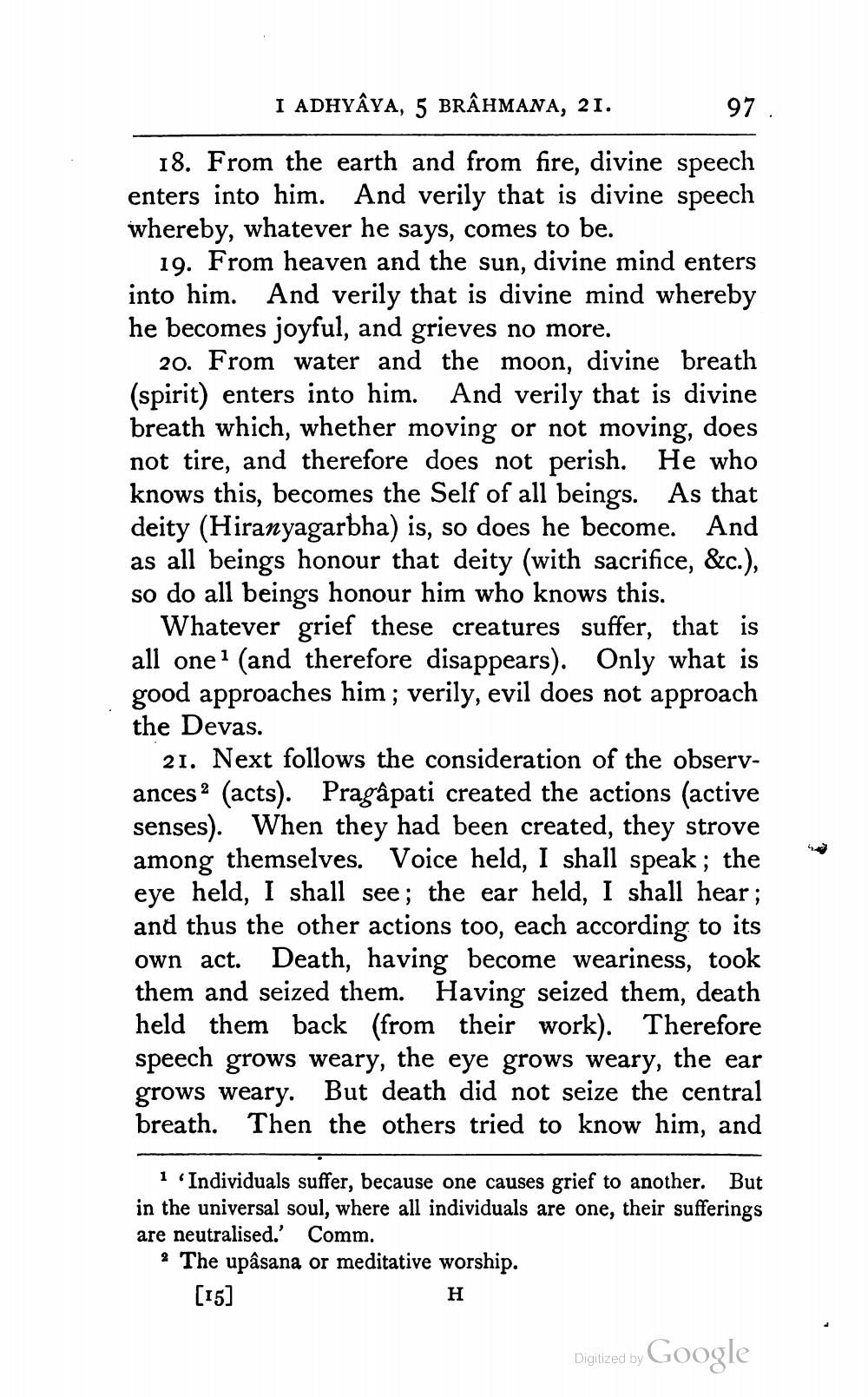________________
I ADHYAYA, 5 BRÂHMANA, 21.
97.
18. From the earth and from fire, divine speech enters into him. And verily that is divine speech whereby, whatever he says, comes to be.
19. From heaven and the sun, divine mind enters into him. And verily that is divine mind whereby he becomes joyful, and grieves no more.
20. From water and the moon, divine breath (spirit) enters into him. And verily that is divine breath which, whether moving or not moving, does not tire, and therefore does not perish. He who knows this, becomes the Self of all beings. As that deity (Hiranyagarbha) is, so does he become. And as all beings honour that deity (with sacrifice, &c.), so do all beings honour him who knows this.
Whatever grief these creatures suffer, that is all one? (and therefore disappears). Only what is good approaches him; verily, evil does not approach the Devas.
21. Next follows the consideration of the observances 2 (acts). Pragâpati created the actions (active senses). When they had been created, they strove among themselves. Voice held, I shall speak; the eye held, I shall see; the ear held, I shall hear; and thus the other actions too, each according to its own act. Death, having become weariness, took them and seized them. Having seized them, death held them back (from their work). Therefore speech grows weary, the eye grows weary, the ear grows weary. But death did not seize the central breath. Then the others tried to know him, and
1 Individuals suffer, because one causes grief to another. But in the universal soul, where all individuals are one, their sufferings are neutralised.' Comm.
2 The upâsana or meditative worship.
[15]
Digitized by Google




